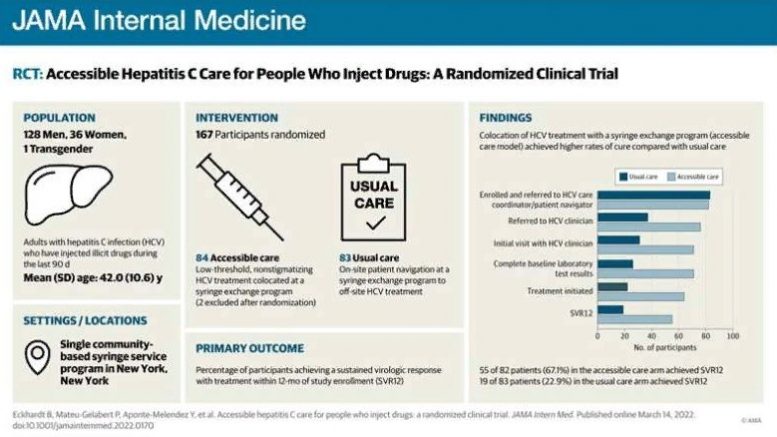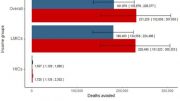In patients who inject drugs, the accessible care paradigm is more effective than standard care in curing hepatitis C.
According to a study conducted by CUNY SPH researchers in collaboration with colleagues from Weill Cornell Medicine and NYU School of Medicine, the accessible care model, which is characterized by low-threshold, nonstigmatizing care co-located in a syringe service program, appears to be more effective than the traditional care model, in which patients are referred to local clinicians.
167 people who had hepatitis C and had used drugs in the last 90 days took part in a clinical trial at the Lower East Side Harm Reduction Center, a New York City syringe service program, to see how the accessible care model was different from the usual care.
60% of people who got accessible care treatment were cured of the hepatitis C virus, compared to just 23% of people who got standard care. This is a big difference.
The findings imply that the accessible care model can be used to design treatment programs aimed at engaging, treating, and curing people who inject drugs with hepatitis C.
This study shows that people who inject drugs can successfully engage in hepatitis C treatment when services are delivered in a non-stigmatizing manner, in a setting where they feel welcome, and when services are tailored to their specific needs, says Pedro Mateu-Gelabert.
“I think “Accessible Care” is a good way to get health care for people who use drugs. I think it could be used to get other important health care for people who use drugs.
The research was published in the journal JAMA Internal Medicine.





